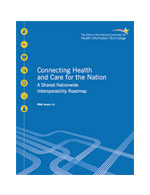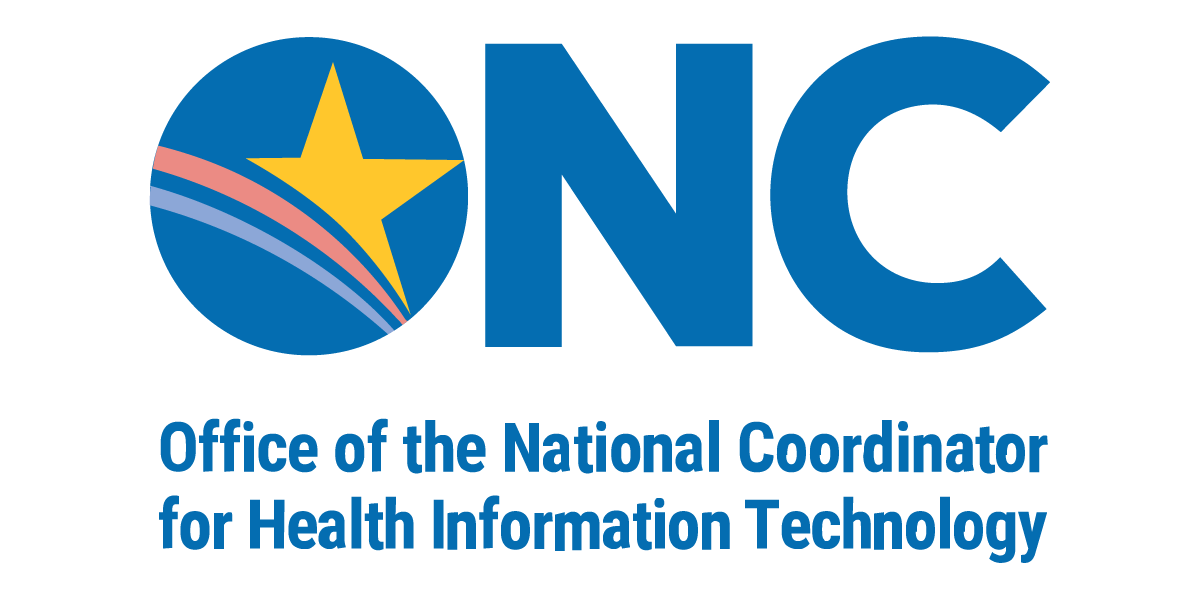 ONC accepted public comments on Connecting Health and Care for the Nation: A Shared Nationwide Interoperability Roadmap Draft Version 1.0. The comment period ended on April 3, 2015.
ONC accepted public comments on Connecting Health and Care for the Nation: A Shared Nationwide Interoperability Roadmap Draft Version 1.0. The comment period ended on April 3, 2015.
The draft Roadmap proposes critical actions that need to be taken by both private and public stakeholders to advance the nation towards a more connected, interoperable health IT infrastructure and was drafted by ONC based on input from private and public stakeholders. The draft Roadmap outlines the critical actions for different stakeholder groups necessary to help achieve an interoperable health IT ecosystem.



Interoperability Comments
Zynx Health
Please see uploaded comments
2015-03-20_shared_nationwide_interoperability_roadmap_-_public_comment_-_zynx_health.pdfRx Express Pharmacy of East Northport
Where we are- most if not all pharmacies are and have been linked thru NCPDP data transmissions for most prescriptions with insurance companies through software company switches. In NY, 85% of all pharmacies are ready for all electronic transmission receipt including controlled substances.
Rx Express Pharmacy of East Northport
Where we are- most if not all pharmacies are and have been linked thru NCPDP data transmissions for most prescriptions with insurance companies through software company switches. In NY, 85% of all pharmacies are ready for all electronic transmission receipt including controlled substances.
Global Patient Identifiers, Inc.
Please see items in the attached document
oncinteroperabilityroadmapcomments.docSSM Health
Please see attached feedback organized by section.
ssm_health_feedback_on_2015_10_yr_interoperability_road_map.docxAmerican Immunization Registry Association (AIRA)
Thank you for the opportunity to comment on this excellent document. Please see attached for detailed comments from our organization, organized by section and page number.
aira_comments_on_onc_interoperability_roadmap.pdfNational Partnership for Women & Families
The 22 organizations and members of the Consumer Partnership for eHealth, joined by others, who sign this letter do so jointly in one letter rather than send 22 separate letters. If ONC is counting numbers of responses for any particular purpose, please count them as 24 responses rather than a single response.
Thank you,
Mark Savage
consumer_partnership_for_ehealth_letter_on_interoperability_roadmap_03-31-2015.pdfCitizens' Council for Health Freedom
In short, we are opposed to the creation of a national electronic medical records and patient and doctor tracking system -- and the proposed ONC Roadmap to impose that system. We therefore call for ONC to start over with privacy rights as a priority. Please see attached comments on specifics we oppose in the interoperability plan.
onc_interoperability_plan_march_30_2015.pdfReasons I oppose this action:
1. Proposes to repeal federal law that allows state legislatures to enact true medical privacy laws for citizens. The Roadmap proposes to undo state’s rights under HIPAA to enact state laws and conform all state laws to federal HIPAA “no privacy” rule. People's privacy should be protected, and states should have every right to do what they need to in order to keep the privacy of their residents safe.(p. 67)
2. Makes patients vulnerable to hacking of patient data: “As health IT systems have become increasingly connected to each other, cyber threats have concurrently increased at a significant rate. In an interoperable, interconnected health system, an intrusion in one system could allow intrusions in multiple other systems.” We already have people stealing other's financial identities, their tax returns & soon we'll have people stealing your medical information. Just no. (p. 55)
8. Links data without consent for government and research use: “As a learning health system evolves, more than individual/patient-specific information from health records will be matched and linked, including provider identities, system identities, and device identities and others to support public health and clinical research.” Once again, this is PRIVATE information & should be kept that way. (p. 24)
The SCAN Foundation
The SCAN Foundation (Foundation) is dedicated to advancing a person-centered, coordinated, and easily navigated system of high-quality services for older adults that preserves dignity and independence. A strong, interoperable health IT system is fundamental to supporting a high-quality person-centered system of care. We commend the Office of the National Coordinator for working toward a Shared Nationwide Interoperability Roadmap (Roadmap) to increase the use of health IT across the continuum of care.
Health care and long-term care systems vary in how services and outcomes are documented, often “speaking different languages.” It is important that the evolution of health IT addresses the needs and concerns of each provider type to encourage participation across the continuum of care, particularly minimizing the entry of information multiple times due to multiple and possibly conflicting reporting, billing and quality measurements systems. For example, a community-based LTSS provider may have to communicate with a state agency, federal agency, and/or a health plan depending on the funding source for the service provided all using different data systems and reporting requirements. We recommend identifying the different types of services and their current reporting requirements and mechanisms to develop a plan that leads to creating the most efficient and effective health IT system.
Creating a health IT system that allows individuals the opportunity to express their goals, needs, and preferences aligns with person-centered care. The Roadmap does recognize the importance of creating a system that gives individuals the opportunity to decide how and to whom their health information is shared. We recommend the health IT system also have the capacity to collect and manage both self-reported quantitative and qualitative data that can be used to inform an individual care plan and evaluate quality of care, engaging the individual as part of their care team.